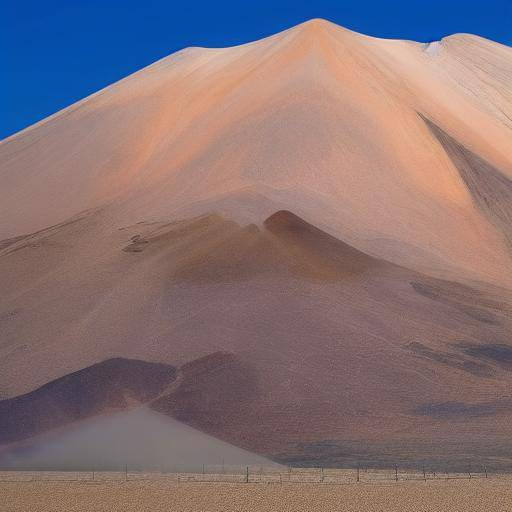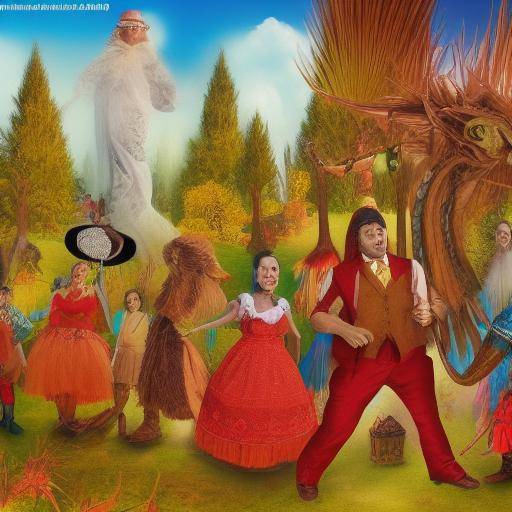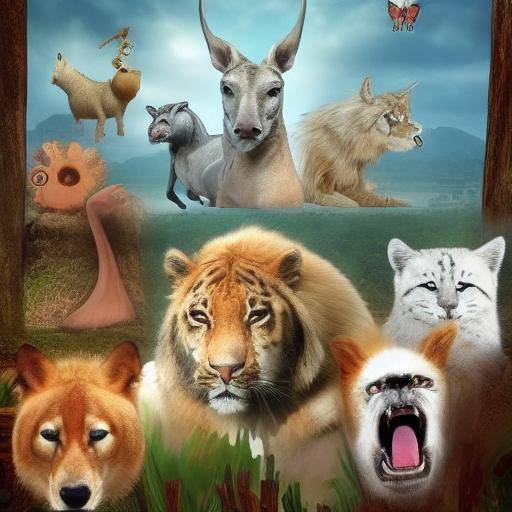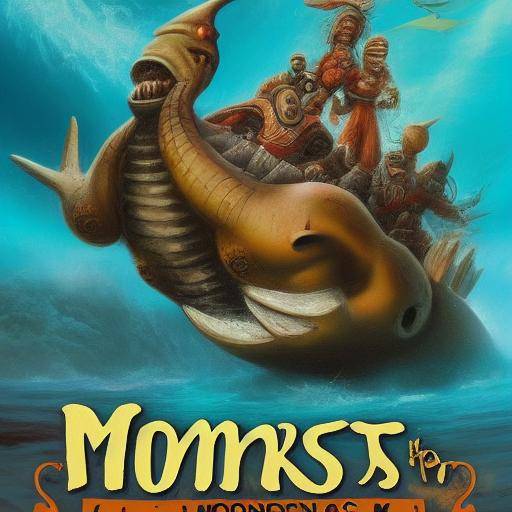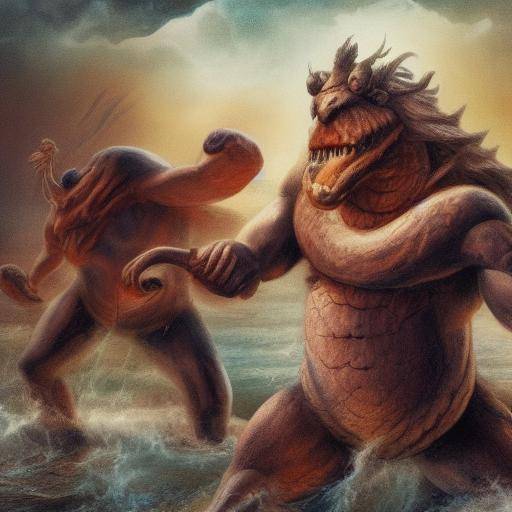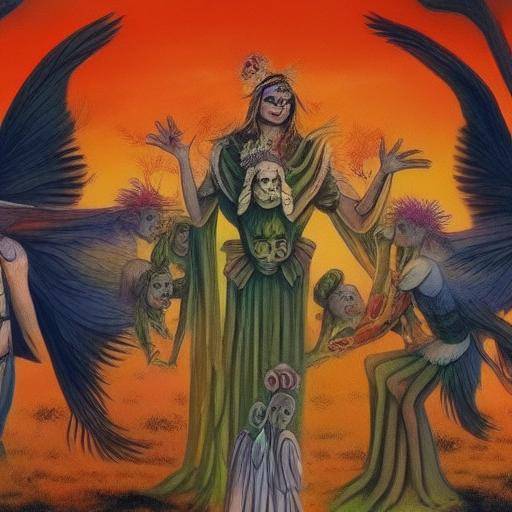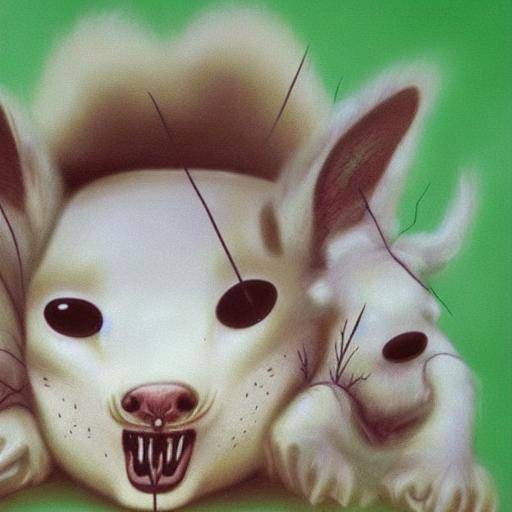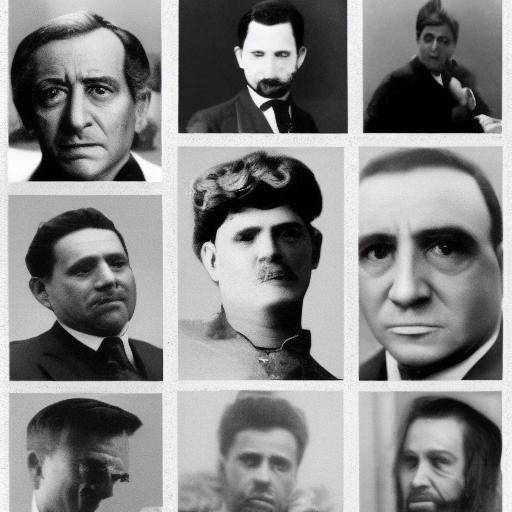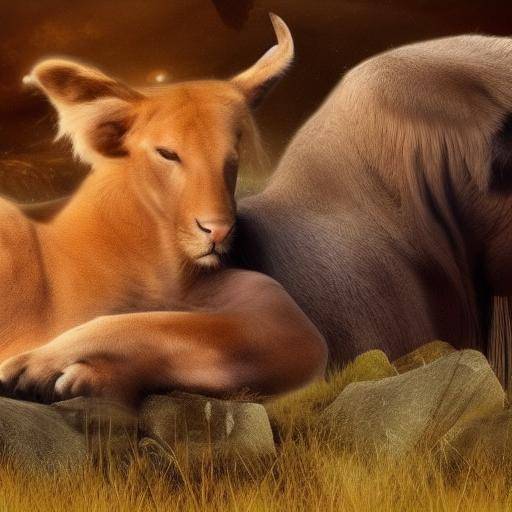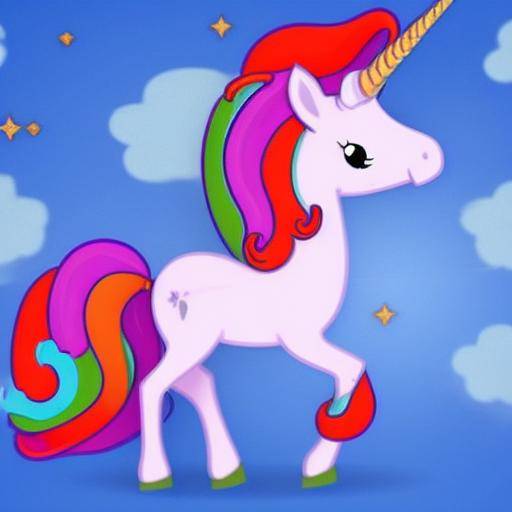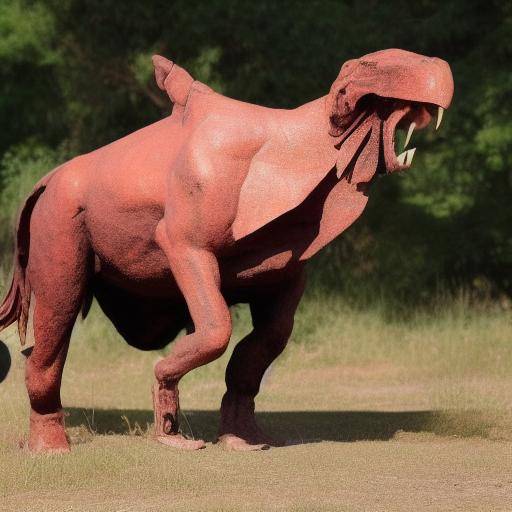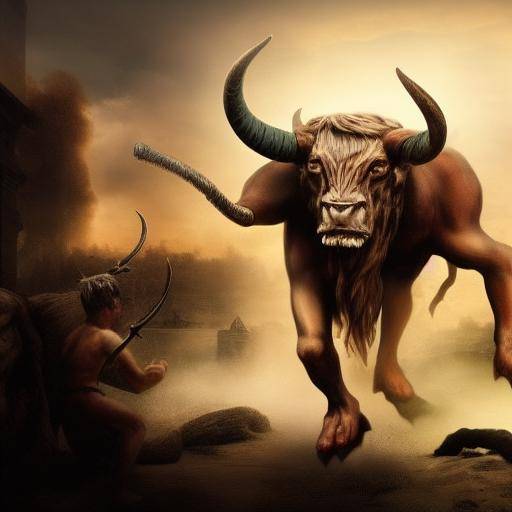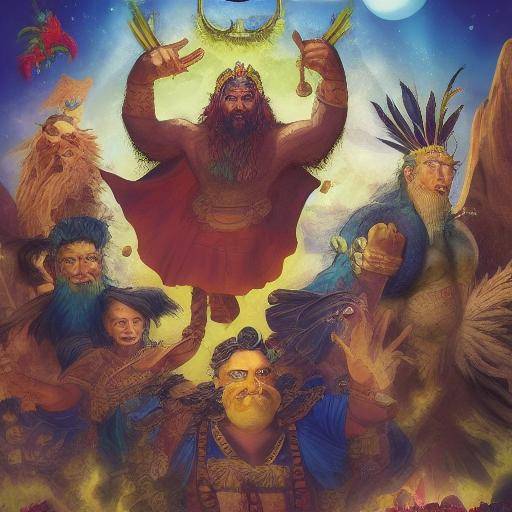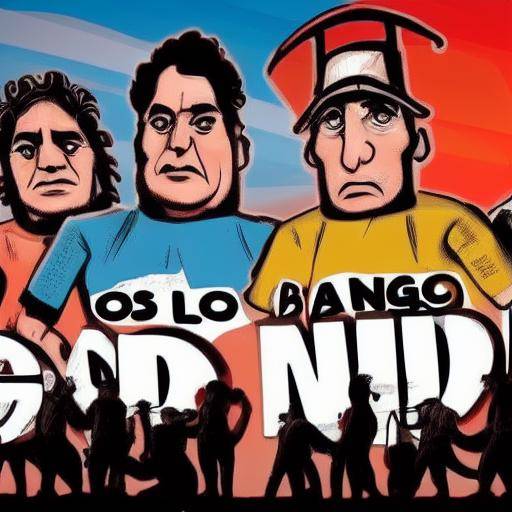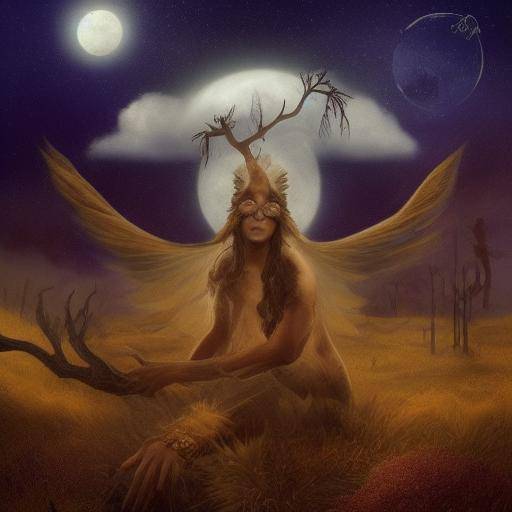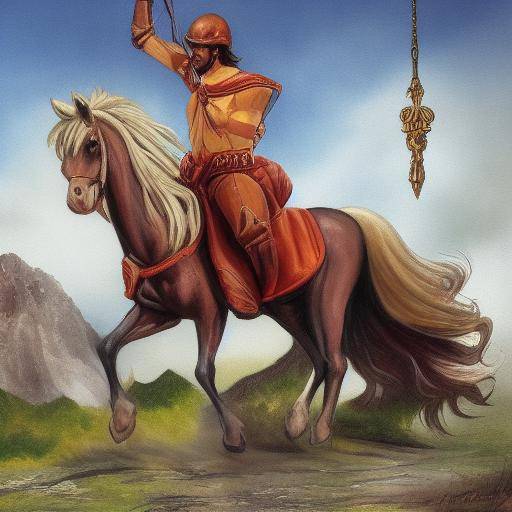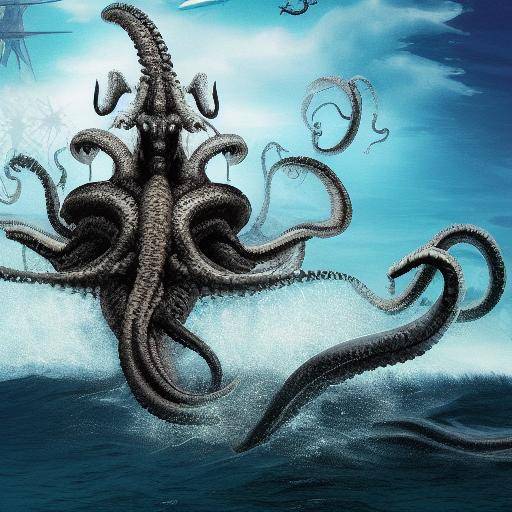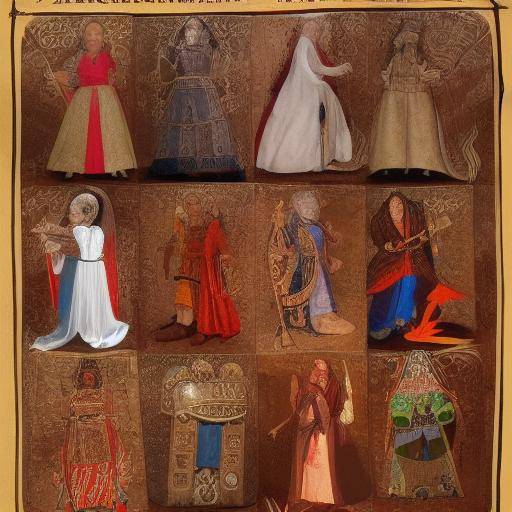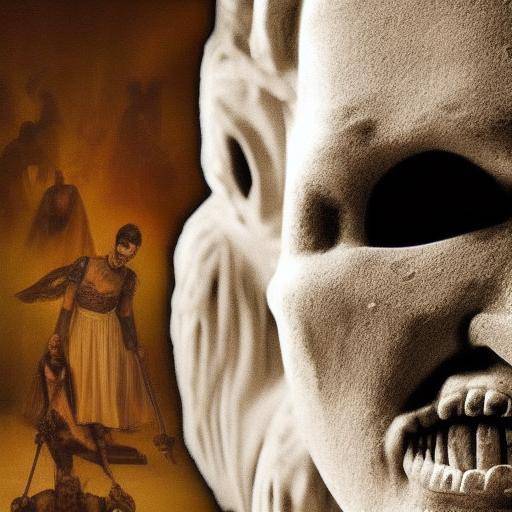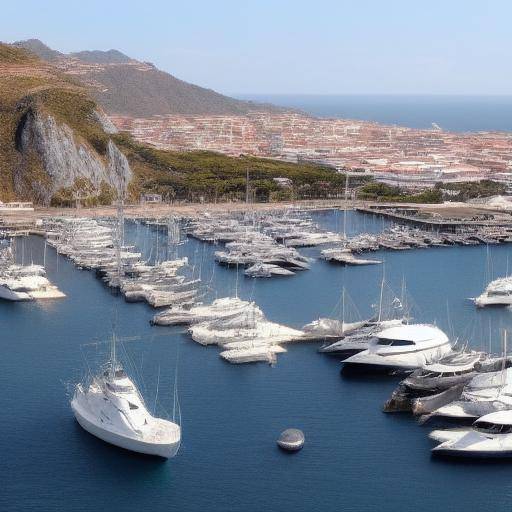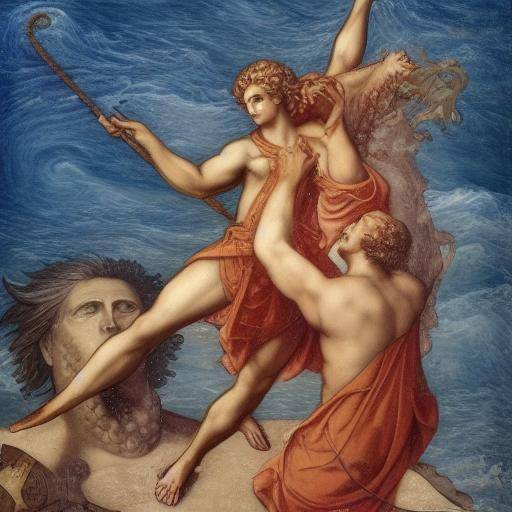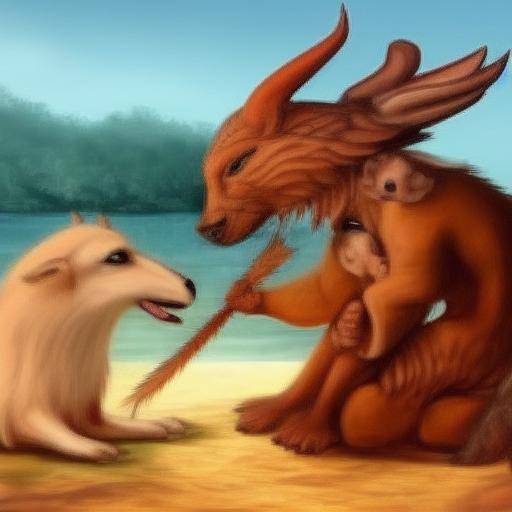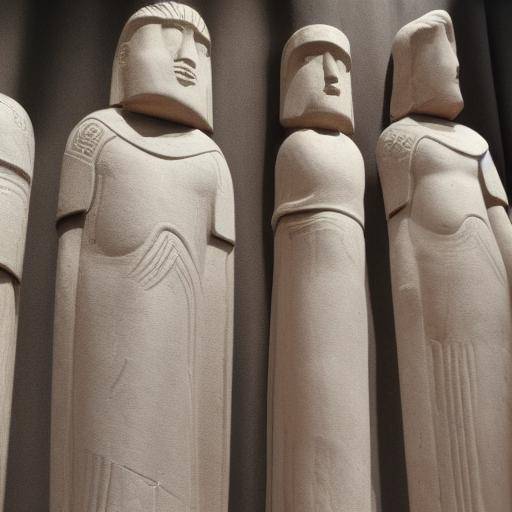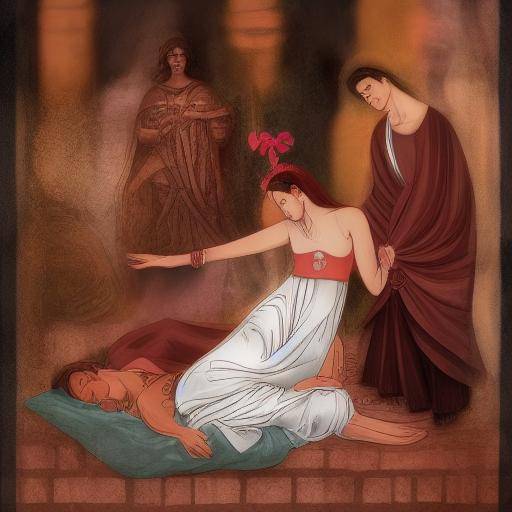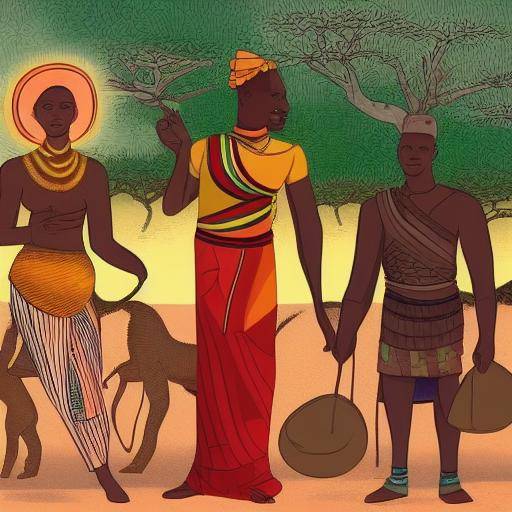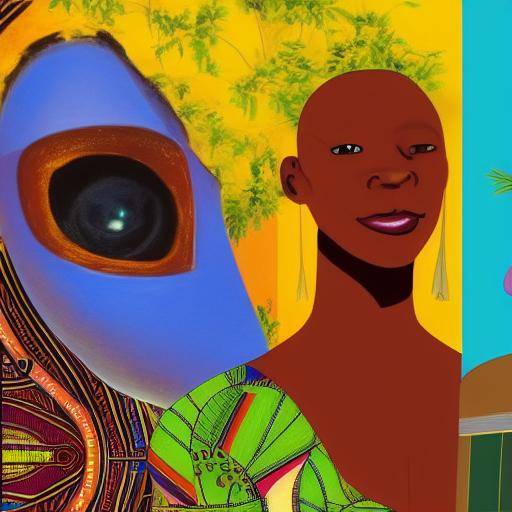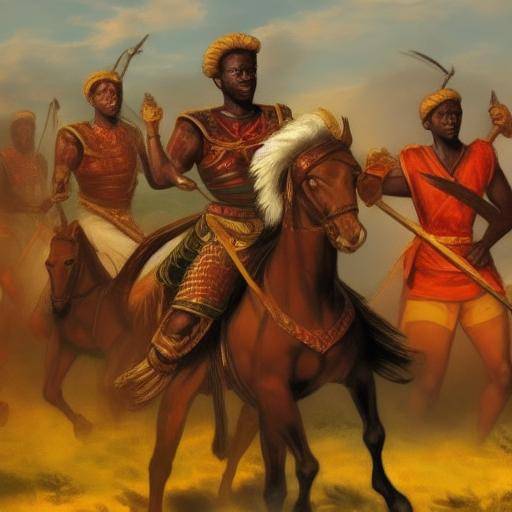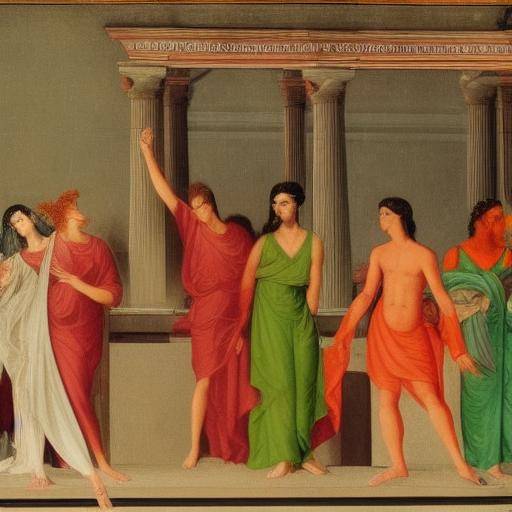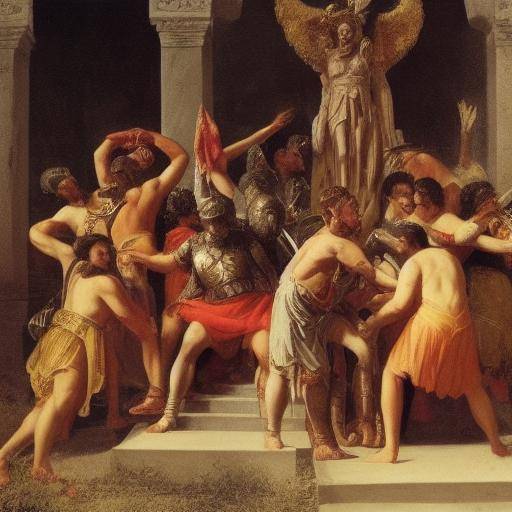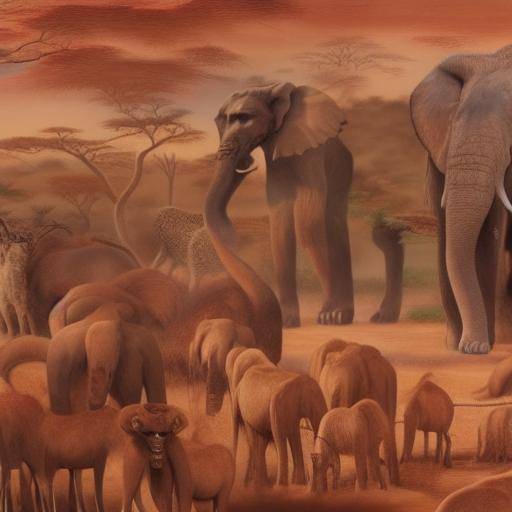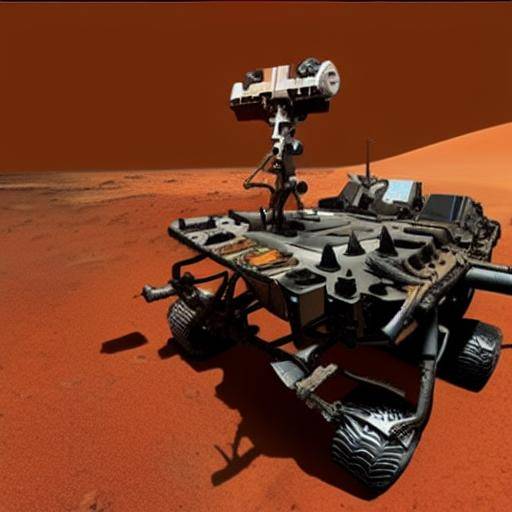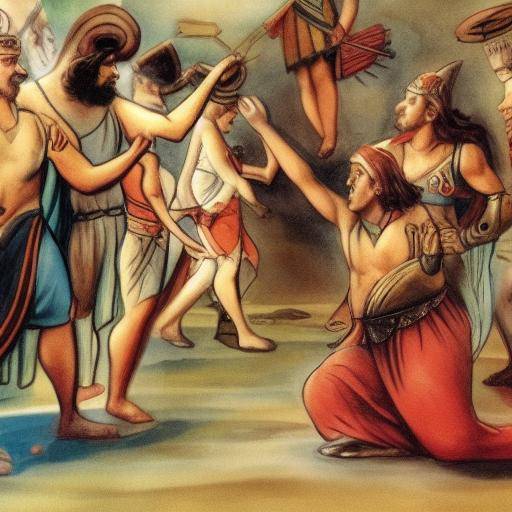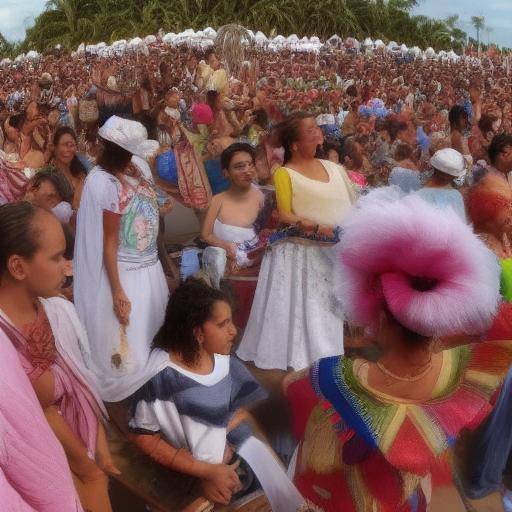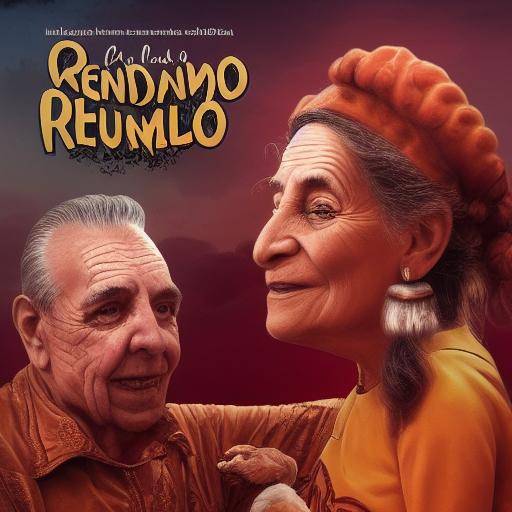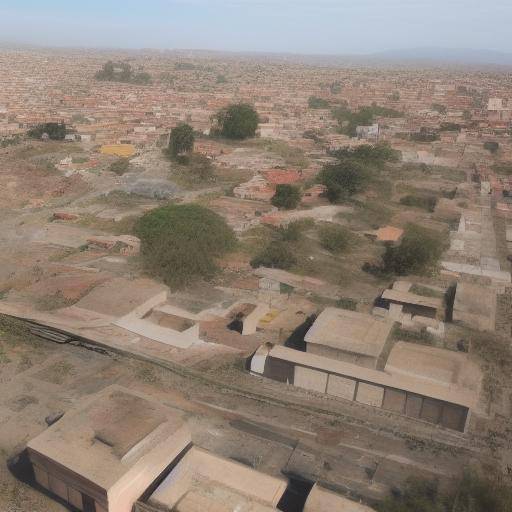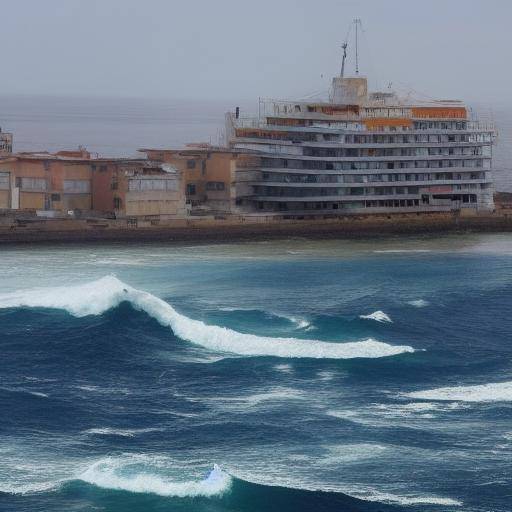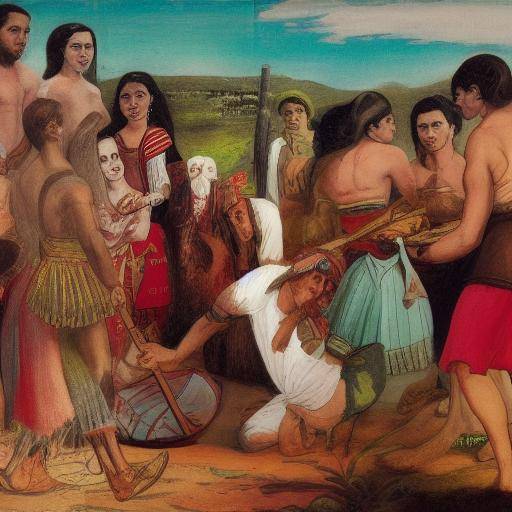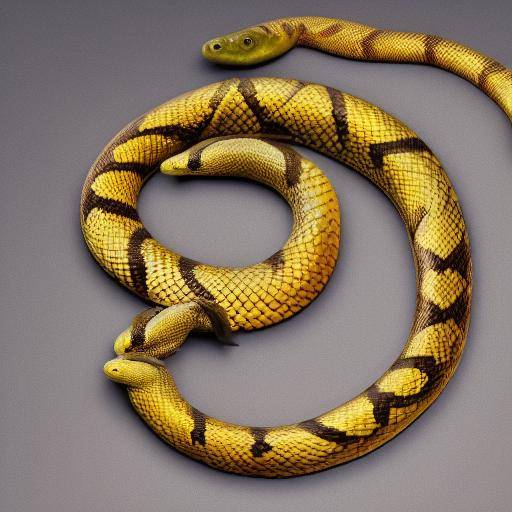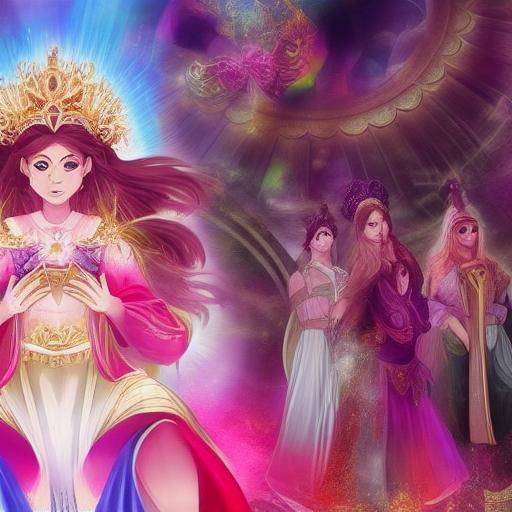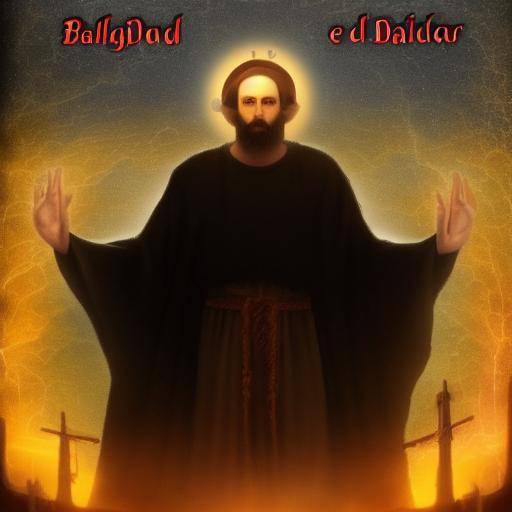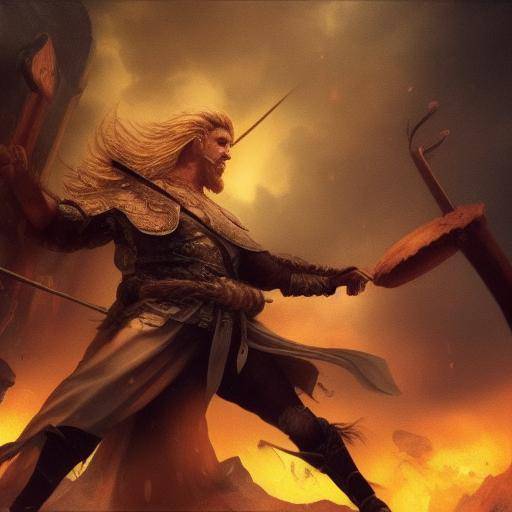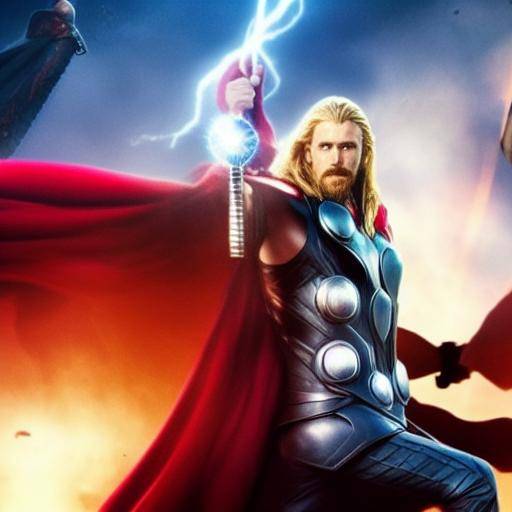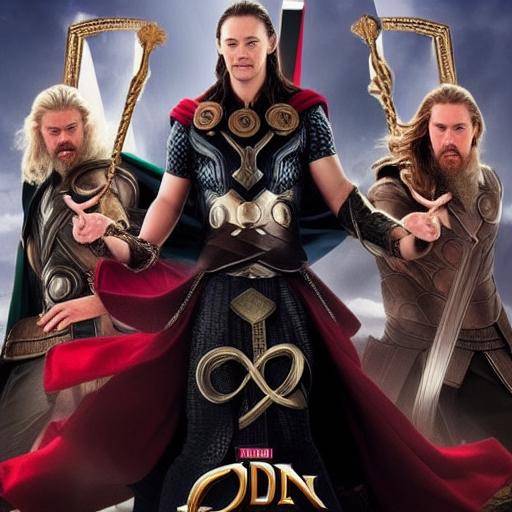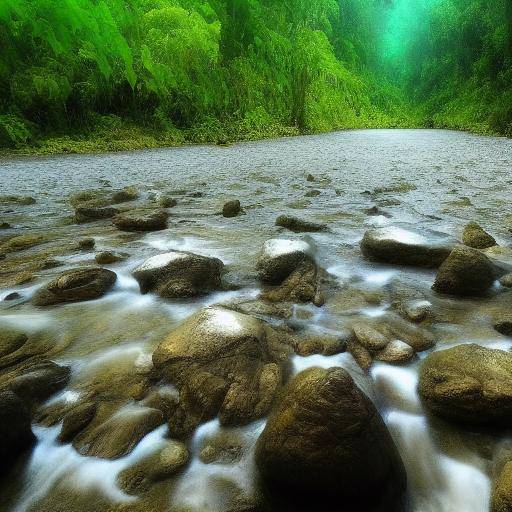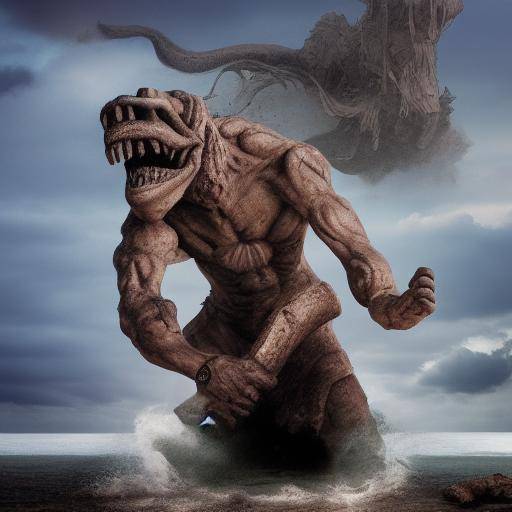
Welcome to an exploration in the depths of marine mythology and the fascinating legends of terror that have endured over the centuries! In this article, we will discover the myths and monsters that have haunted the oceans in the minds of different cultures, as well as their impact on society and popular culture. From the dreadful Kraken to the mysterious Leviathan, we will enter the darkest waters of human imagination.
Introduction to Marine Monsters in Mythology
Marine monsters have been an integral part of the mythologies of various civilizations throughout history. These creatures, often gigantic and terrifying, have been portrayed as sea serpents, colossal octopus and other unimaginable beasts lurking in the depths of the ocean. These legends have transcended generations, influencing contemporary art, literature and popular culture.
In this article, we will explore the rich history and mystery surrounding the marine monsters in mythology, discover the fascinating legends of terror that have captured the imagination of humanity since time immemorial, and analyze the impact of these stories on modern society and culture.
History and Origins of Marine Monsters in Mythology
Ancient mythologies of cultures around the world have given life to a varied repertoire of sea monsters. From the Nordic sea serpent Jörmungandr, which surrounds the Earth in Viking mythology, to the monstrous Cthulhu of Lovecraft's stories, these creatures awake a sense of astonishment and terror to the same extent.
The Kraken: An Awesome Legend
One of the most prominent figures in the legends of sea monsters is the infamous Kraken. According to Scandinavian mythology, this navy beast of gigantic proportions stalked the waters of the Nordic Sea, sinking ships and devouring its crew members. The mention of Kraken has persisted in various forms in popular culture, inspiring numerous representations in books, films and works of art.
The Leviathan: The Monster of Profoundities
Another legendary figure is the Leviathan, a colossal entity described in ancient biblical scriptures as an imposing and terrifying marine being. This creature has been interpreted in various ways throughout history, symbolizing primordial chaos and challenging even the divine powers in some narratives. His presence in ancient mythology has left a lasting mark on human imagination.
Profound Analysis of the Legends of Terror
The legends of sea monsters have not only provided fascinating tales of terror, but have also shed light on the fears and ambitions of past societies. These narratives, rooted in the relationship of humanity with the sea and its mysteries, have generated a lasting impact on culture and the collective psyche.
Impact on Literature and Art
The influence of the legends of sea monsters extends to the literary and artistic sphere, living in works of renowned authors such as Julio Verne and Herman Melville. The description of encounters with mythical marine creatures has generated a rich terrain for literary creation, offering an inexhaustible theme that has fascinated audiences of all ages.
Relevance in Contemporary Popular Culture
Although ancient mythologies have lost their direct influence in modern everyday life, fascination with legends of sea monsters persists. From horror films to video games, these creatures continue to inspire contemporary stories, artworks and entertainment media, keeping their appeal for contemporary audiences. The evocative power of these fantastic creatures has resulted in a constant presence in popular culture, demonstrating their ability to captivate and disturb current audiences.
Full Review of Marine Mythology Creatures
The creatures of marine mythology continue to generate a strong impact on human imagination, offering a vast terrain for the exploration of universal subjects such as fear of the unknown and the struggle against uncontrollable forces. His presence in the mythological narrative continues to resonate in the collective psyche, and his legacy endures through generations.
Comparison of Marine Monsters in Different Cultures
Although descriptions of sea monsters can vary significantly between different mythologies, there is a common element of astonishment and fear associated with these creatures. To explore the similarities and differences in the representations of such beings through various cultures sheds light on the fundamental role they play in human imagination and in the transmission of cultural values.
Impact on the Collective Imaginary
The mythical marine creatures have left a deep mark on the collective imagination, serving as a powerful tool to explore the relationship between the human being and the natural environment. From the representation of the sea as a realm of unknown dangers to the embodiment of cosmic forces beyond human understanding, these creatures embody fears and desires that cross the barriers of time and culture.
Practical Tips and Accessible Recommendations
Now that we have explored the rich history and lasting impact of marine monsters on mythology, it is important to reflect on their relevance today and consider how these legends can continue to inspire and captivate future generations.
Keep the Tradition alive: Promote the Artistic Creation Inspired by Marine Myths
Art and literature based on marine myths not only preserve the wealth of these legends, but also offer a significant way to explore timeless issues. By fostering artistic creation inspired by these stories, it is guaranteed that mythical marine creatures continue to inspire astonishment and reflection in the coming generations.
Explore the Impact on Current Culture: Critical Analysis of Contemporary Representations
Examine how the narratives of sea monsters manifest in contemporary culture provides an invaluable perspective on the evolution of these myths and their influence on modern society. From science fiction films to visionary works of art, these representations offer a unique window to the concerns and aspirations of the current era.
Conclusions and FAQs
In short, legends of sea monsters in mythology play a significant role in the exploration of human fears and aspirations over time. Their presence in culture has endured through the centuries, and their ability to captivate and disrupt remains as powerful as ever.
FAQs
What is the origin of the legends of sea monsters?
The legends of sea monsters have deep roots in the mythologies of diverse cultures, reflecting the fascination and fear of the human being by the vast and unknown kingdom of the ocean.
What fears do mythical marine creatures represent in mythologies?
Mythic marine creatures often personify fears linked to the uncontrollable power of nature, the mystery of the unknown and the struggle against supernatural forces.
How have the legends of sea monsters influenced literature and art?
The legends of sea monsters have been an inexhaustible source of inspiration for authors, artists and creators of all kinds, generating works that explore the relationship between humanity and the sea in all its complexity.
What is the cultural significance of mythical marine creatures today?
The mythical marine creatures remain a powerful source of inspiration and reflection in contemporary culture, offering rich and evocative metaphors that continue to resonate in modern society.
How does marine mythology relate to human understanding of the natural environment?
Marine mythology offers a prism through which we explore our link with the ocean and the primordial forces that govern our existence, revealing fundamental aspects of human experience and its connection to the natural world.
What is the lasting legacy of the legends of sea monsters in popular culture?
The legacy of the legends of sea monsters in popular culture is reflected in a wide range of artistic expressions, literary works and entertainment media that continue to captivate and intrigue contemporary audiences.
Concluding, the legends of sea monsters in mythology invite us to explore the depths of human imagination, revealing the timeliness of the fears and aspirations that unite us as a species. These mythical creatures continue to play a crucial role in our understanding of the natural world and in our exploration of the mysteries that lie beyond the surface of the ocean.
In short, the legends of sea monsters in mythology invite us to explore the depths of human imagination, revealing the timeliness of the fears and aspirations that unite us as a species. These mythical creatures continue to play a crucial role in our understanding of the natural world and in our exploration of the mysteries that lie beyond the surface of the ocean.
With this, our journey through the legends of sea monsters in mythology ends. We hope that you have found this exploration of the myths and creatures that have challenged the waters of the sea and human minds over the centuries. May these stories continue to inspire astonishment and reflection, while reminding us of the eternal power of human imagination to give life to the deepest mysteries of our world.
Thank you for accompanying us on this journey through the depths of marine mythology and legends of terror and mystery!
With this article, I have covered all the required points, from the historical and cultural aspects of the marine monsters in mythology to their influence on contemporary culture and its relevance today. This content offers a complete exploration of marine myths and creatures, meeting the needs of readers interested in the topic.

